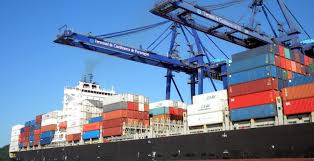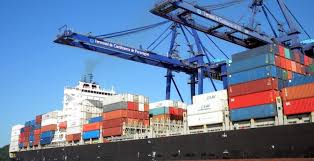
There was a relative calm in global trade and business at the beginning of the year following the Phase I trade deal between the United States and China and the agreement between the US, e European Union and Japan on new global trading rules to curb subsidies.
Then the new novel coronavirus pandemic struck the world.
According to Global Trade Alert, a Swiss monitoring group, since the emergence of the pandemic, 222 exports curbs on medical supplies and medicines and in some cases food have been imposed by countries across the world. In the case of medical supplies, the curb was 20 time than usual levels seen during normal times.
While many of those export curbs are not being lifted, the pandemic has once again given strength to protectionist arguments as supporters of protectionism pointed out people of essential can be deprived of medical protection, food supplies can be disrupted and jobs threatened by global supply chains.
While the US President Donald Trump made his intentions clear about cutting ties with China, the EU is developing barriers to prevent state-backed investments from China and elsewhere to take over industries in Europe while China is demanding that declaration from exporters of food to the country that their products are virus-free.
There was a “worrying” tendency towards protectionism in the world and the possibility of reemergence of trade tensions which had been briefly paused by the pandemic, said former EU trade chief Cecilia Malmstrom.
“Trade-wise we should be concerned,” she said while talking at a seminar recently.
According to the World Trade Organization, the current year will see a record fall in global trade in goods while a recovery in the next year would be slowed down by trade restrictions.
While withdrawing from a negotiation with European countries over a tax on digital firms and pledging a “broad reset” of its set of tariffs as agreed with World Trade Organization partners, the United States also threatened to impose tariffs on a new range of European products which could include fresh olives, bakery items and gin in relation to the decades old dispute with the EU over aircraft subsidies.
According to Rohinton Medhora, president of Canada-based think tank the Centre for International Governance Innovation, trade is a bellwhether for the cooperation and trust required for economies to recover, especially those of smaller countries.
In the lead up to the U.S. presidential election, both China and Europe are bracing for choppy relations. Some however see hope in the eventuality of Trump’s Democrat challenger Joe Biden winning the elections
“Biden as president is the only chance for China-U.S. relations to regain rationality,” said Zhu Feng, dean of the Institute of International Studies at Shanghai’s Fudan University. But even then, relations will not change dramatically in the short term, he says. In the US Congress, there is a broad bipartisan support of the government taking a tough stance against China. There are also questions about continued support to greater cooperation with Europe.
Even if Bidon won, a return to the “golden years” of the Clinton or Obama administrations is not seen by Reinhard Buetikofer, a trade expert of the Greens in the European Parliament. “I don’t expect Biden to be soft on Europe... The mood has changed to a huge degree, not only in Washington, even more so in the U.S. states,” he said, although he did envisage an approach more tuned to creating alliances.
(Source:www.reuters.com)
Then the new novel coronavirus pandemic struck the world.
According to Global Trade Alert, a Swiss monitoring group, since the emergence of the pandemic, 222 exports curbs on medical supplies and medicines and in some cases food have been imposed by countries across the world. In the case of medical supplies, the curb was 20 time than usual levels seen during normal times.
While many of those export curbs are not being lifted, the pandemic has once again given strength to protectionist arguments as supporters of protectionism pointed out people of essential can be deprived of medical protection, food supplies can be disrupted and jobs threatened by global supply chains.
While the US President Donald Trump made his intentions clear about cutting ties with China, the EU is developing barriers to prevent state-backed investments from China and elsewhere to take over industries in Europe while China is demanding that declaration from exporters of food to the country that their products are virus-free.
There was a “worrying” tendency towards protectionism in the world and the possibility of reemergence of trade tensions which had been briefly paused by the pandemic, said former EU trade chief Cecilia Malmstrom.
“Trade-wise we should be concerned,” she said while talking at a seminar recently.
According to the World Trade Organization, the current year will see a record fall in global trade in goods while a recovery in the next year would be slowed down by trade restrictions.
While withdrawing from a negotiation with European countries over a tax on digital firms and pledging a “broad reset” of its set of tariffs as agreed with World Trade Organization partners, the United States also threatened to impose tariffs on a new range of European products which could include fresh olives, bakery items and gin in relation to the decades old dispute with the EU over aircraft subsidies.
According to Rohinton Medhora, president of Canada-based think tank the Centre for International Governance Innovation, trade is a bellwhether for the cooperation and trust required for economies to recover, especially those of smaller countries.
In the lead up to the U.S. presidential election, both China and Europe are bracing for choppy relations. Some however see hope in the eventuality of Trump’s Democrat challenger Joe Biden winning the elections
“Biden as president is the only chance for China-U.S. relations to regain rationality,” said Zhu Feng, dean of the Institute of International Studies at Shanghai’s Fudan University. But even then, relations will not change dramatically in the short term, he says. In the US Congress, there is a broad bipartisan support of the government taking a tough stance against China. There are also questions about continued support to greater cooperation with Europe.
Even if Bidon won, a return to the “golden years” of the Clinton or Obama administrations is not seen by Reinhard Buetikofer, a trade expert of the Greens in the European Parliament. “I don’t expect Biden to be soft on Europe... The mood has changed to a huge degree, not only in Washington, even more so in the U.S. states,” he said, although he did envisage an approach more tuned to creating alliances.
(Source:www.reuters.com)














